6 Effective Solutions to Stop iPhone Brightness from Automatically Changing
Essential Adjustments
- Disable True Tone: True Tone on your iPhone automatically adjusts brightness and color temperature to suit your environment. If there are issues with this feature, it can lead to unpredictable brightness fluctuations. To resolve this, navigate to your iPhone Settings > Display & Brightness, and turn off True Tone.
- Turn Off Active Focus Mode: Each Focus mode features a ‘Dim Lock Screen’ setting that can alter the screen brightness when activated. To stop this from happening, pull down from the upper right-hand corner to access the Control Center and deactivate the Focus option.
- Deactivate Low Power Mode: Low Power Mode helps conserve battery life but may dim the display even if Auto-brightness is disabled. To disable it, go to iPhone Settings > Battery and switch off Low Power Mode.
- Monitor iPhone Temperature: An overheating device can lead to automatic dimming of the screen. Ensure your iPhone isn’t overheating to address brightness issues.
- Update iOS Version: Bugs in the current system software can result in erratic brightness changes. To check for updates, go to iPhone Settings > General > Software Update, then select Install Now to refresh your iOS.
Solution 1: Turn Off Auto-Brightness
Auto-brightness is often the primary culprit behind unexpected brightness shifts. Follow these steps to disable it:
Step 1: Launch the Settings app, tap on Accessibility, and select Display & Text Size.
Step 2: Scroll down and switch off Auto-Brightness.
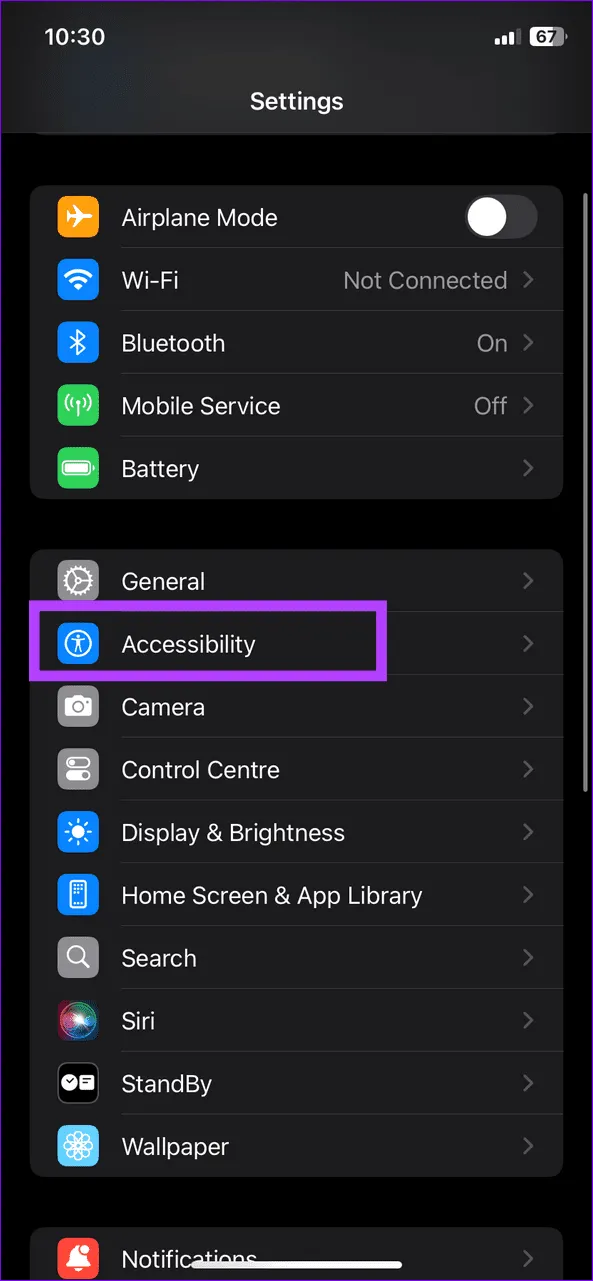
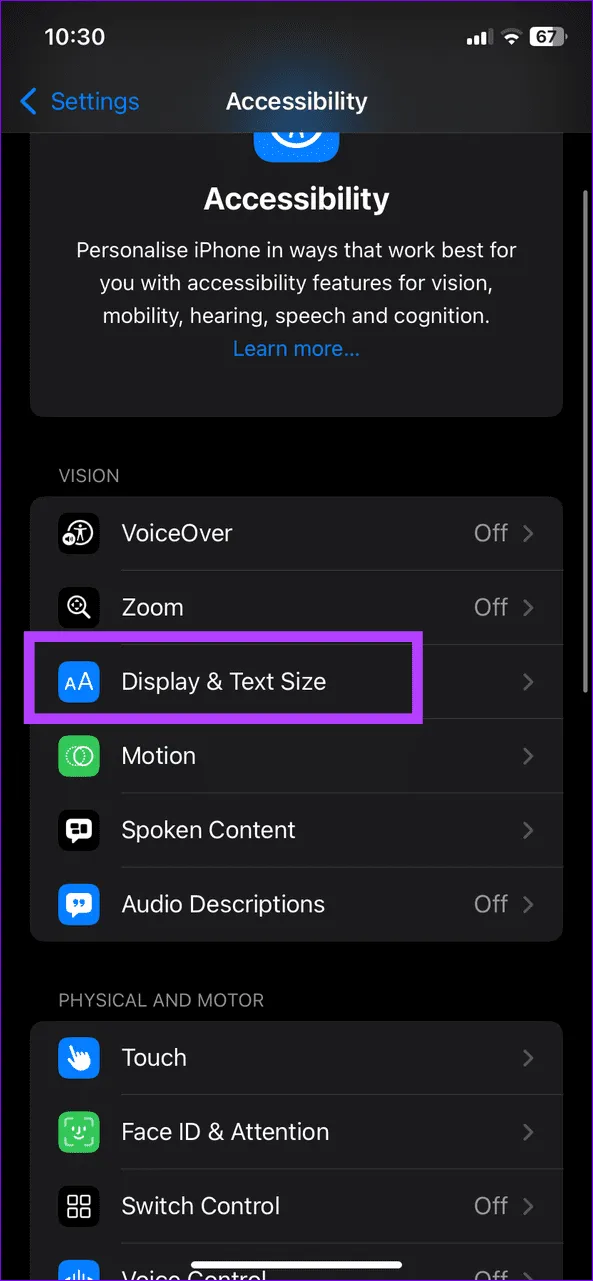
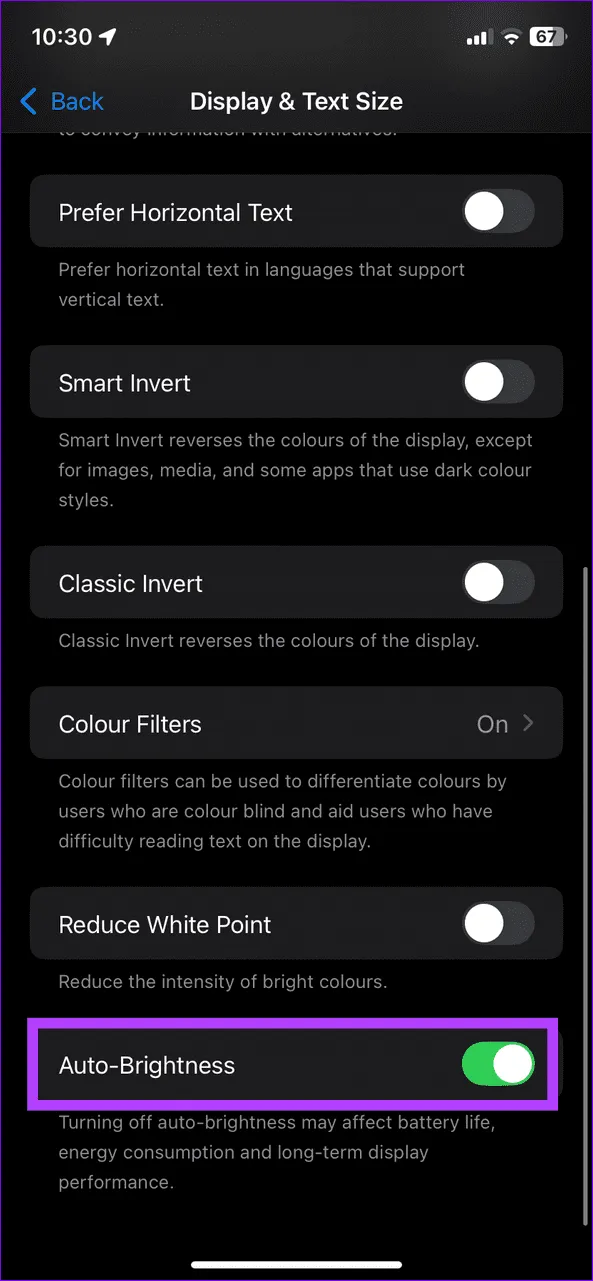
Solution 2: Disable Night Shift Schedule
Your iPhone may be switching to warmer hues at specific times due to a Night Shift schedule. Here’s how to turn it off:
Step 1: Go to Display & Brightness in your iPhone Settings and select Night Shift.
Step 2: Turn off the Scheduled toggle to disable the Night Shift feature.
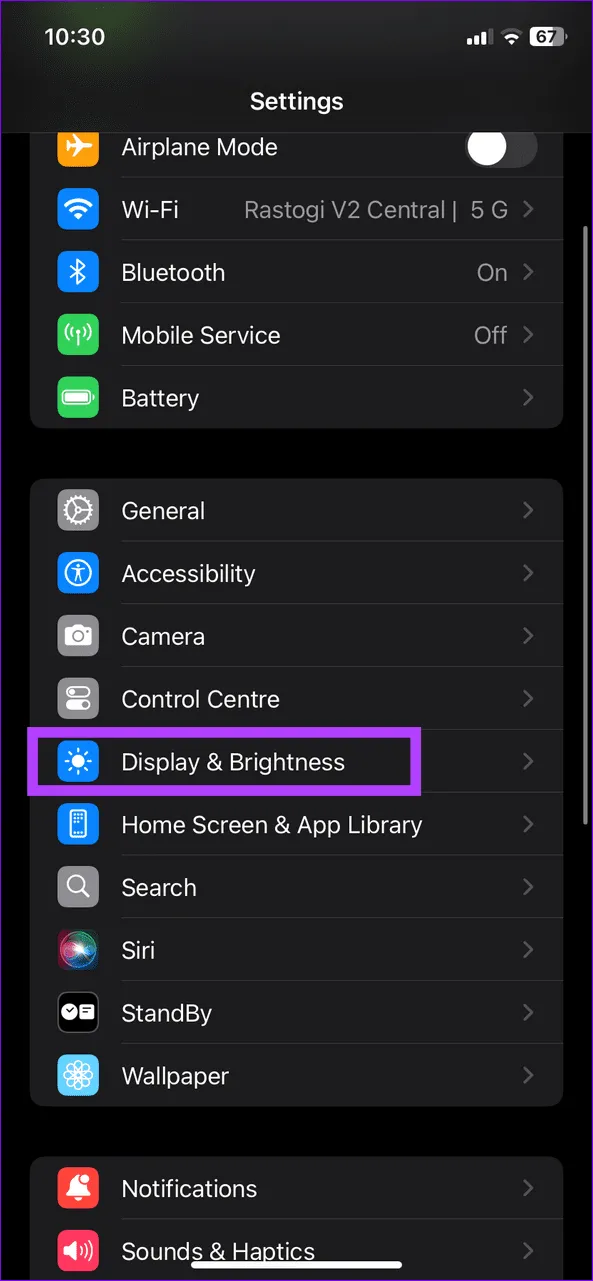
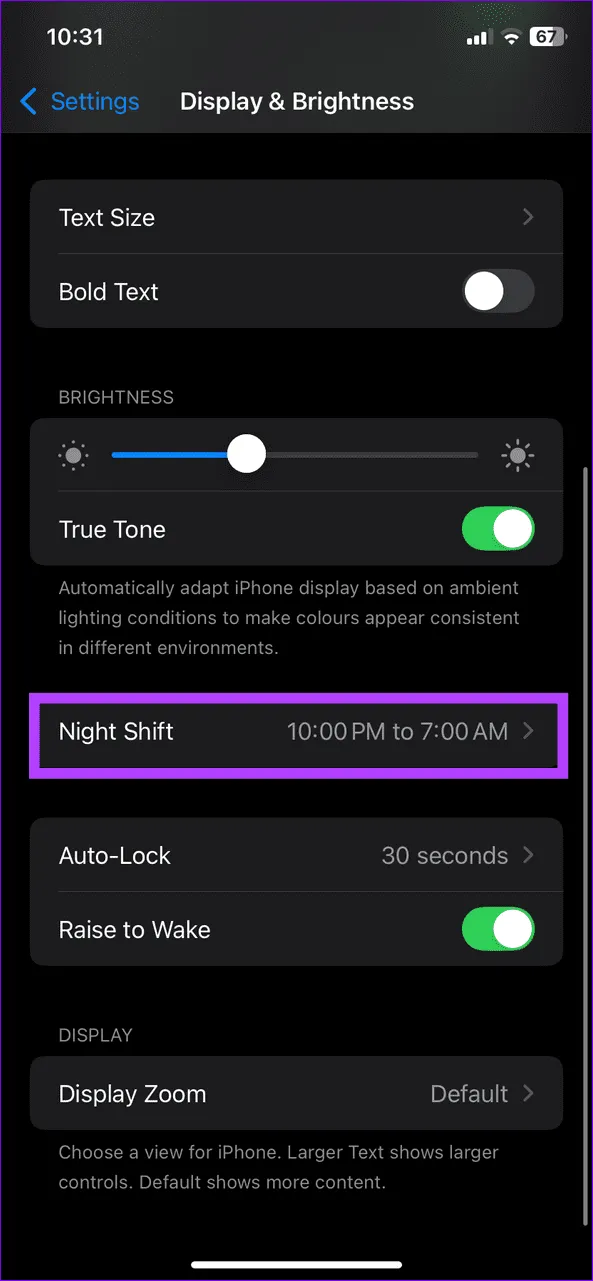
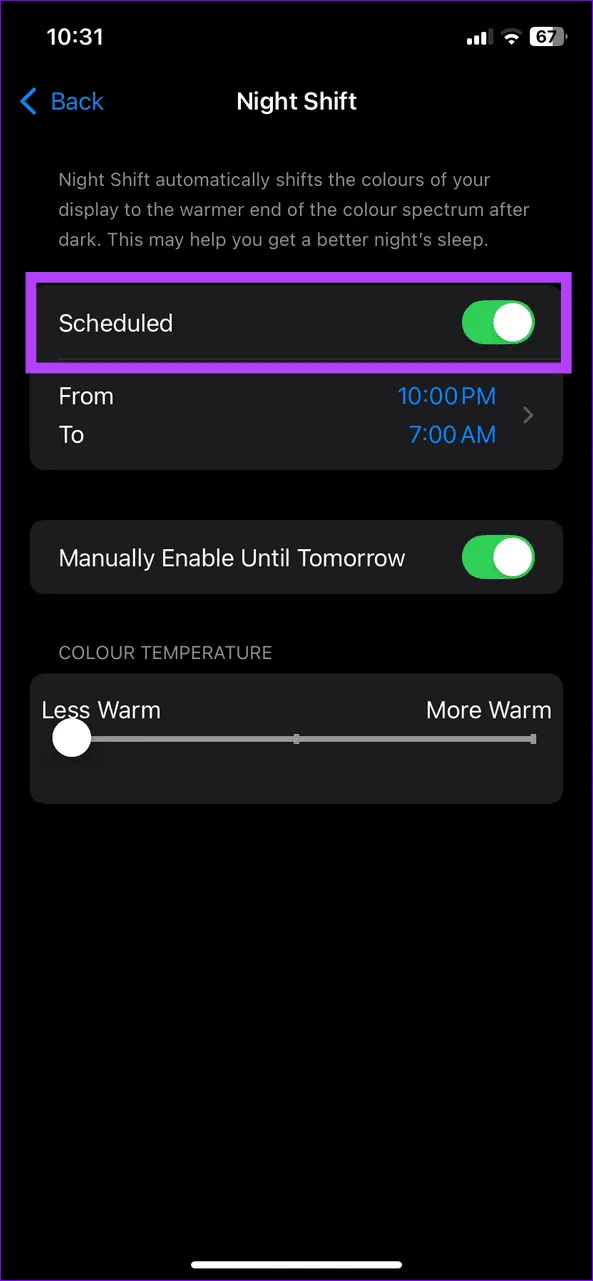
Solution 3: Turn Off White Point and Reduce Transparency
If your iPhone displays overly bright colors that seem washed out, you may need to disable the Reduce White Point function. Additionally, turning off Reduce Transparency can help fix any contrast inaccuracies and eliminate background blurs.
Step 1: Open iPhone Settings, tap on Accessibility, then select Display & Text Size.
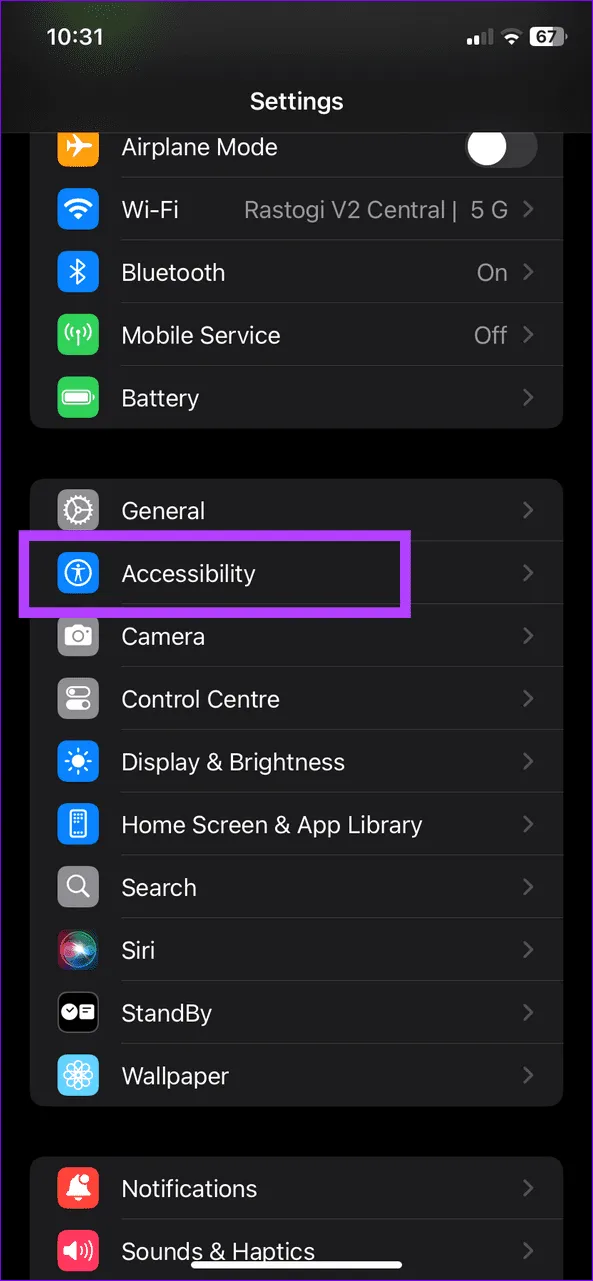
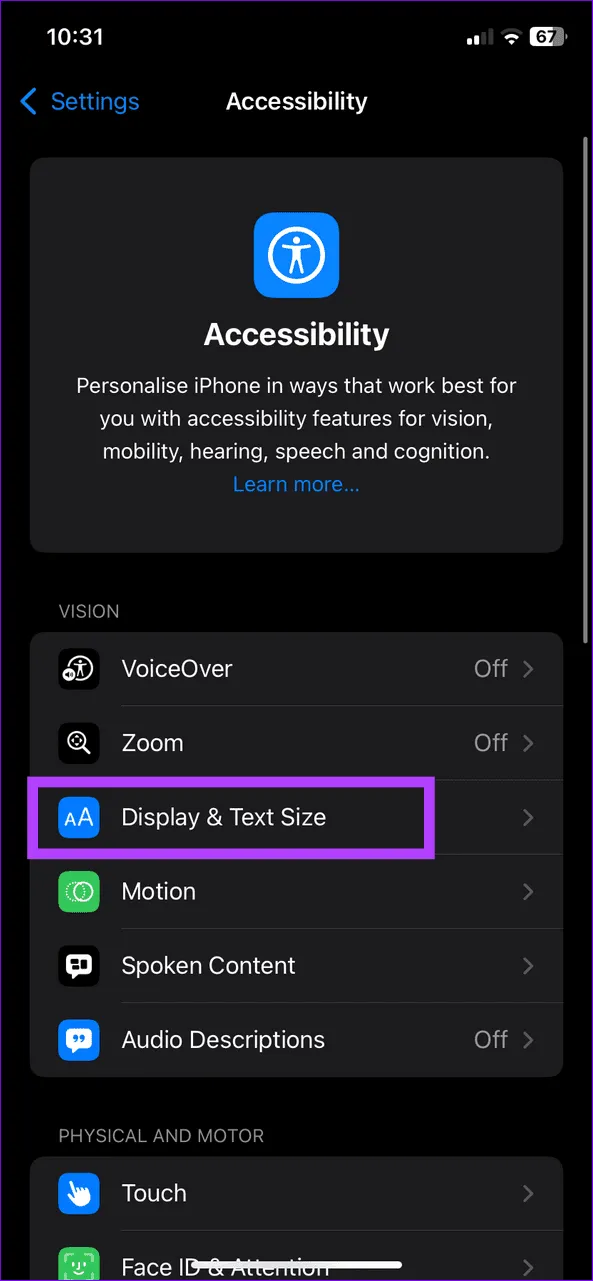
Step 2: Turn off both Reduce Transparency and Reduce White Point.
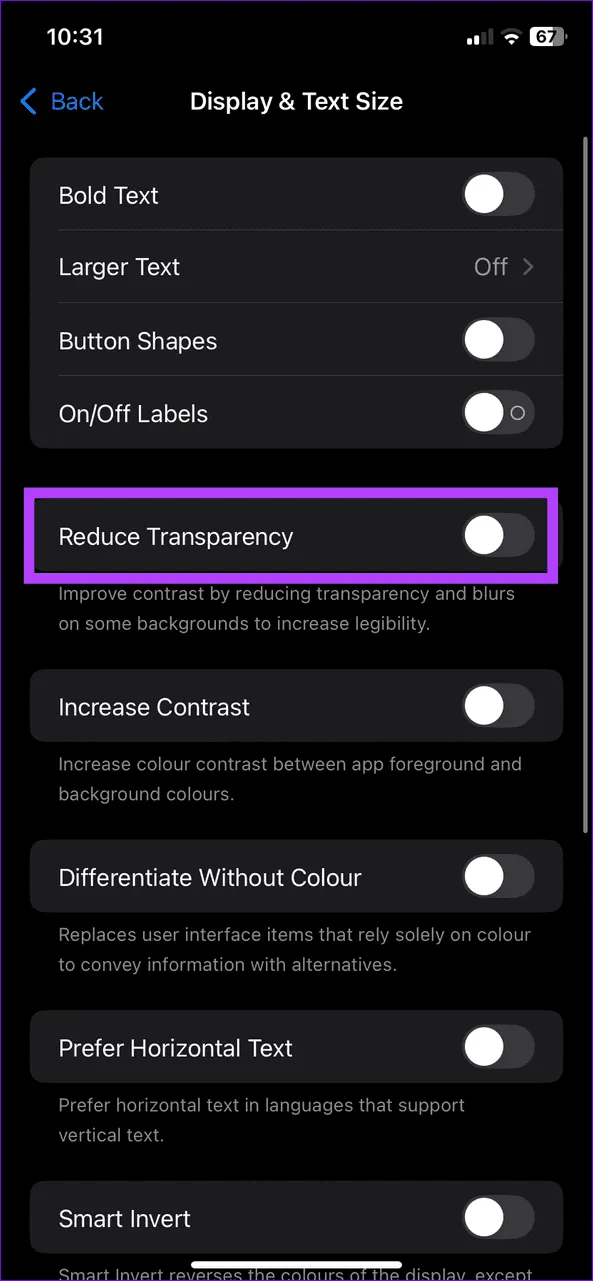
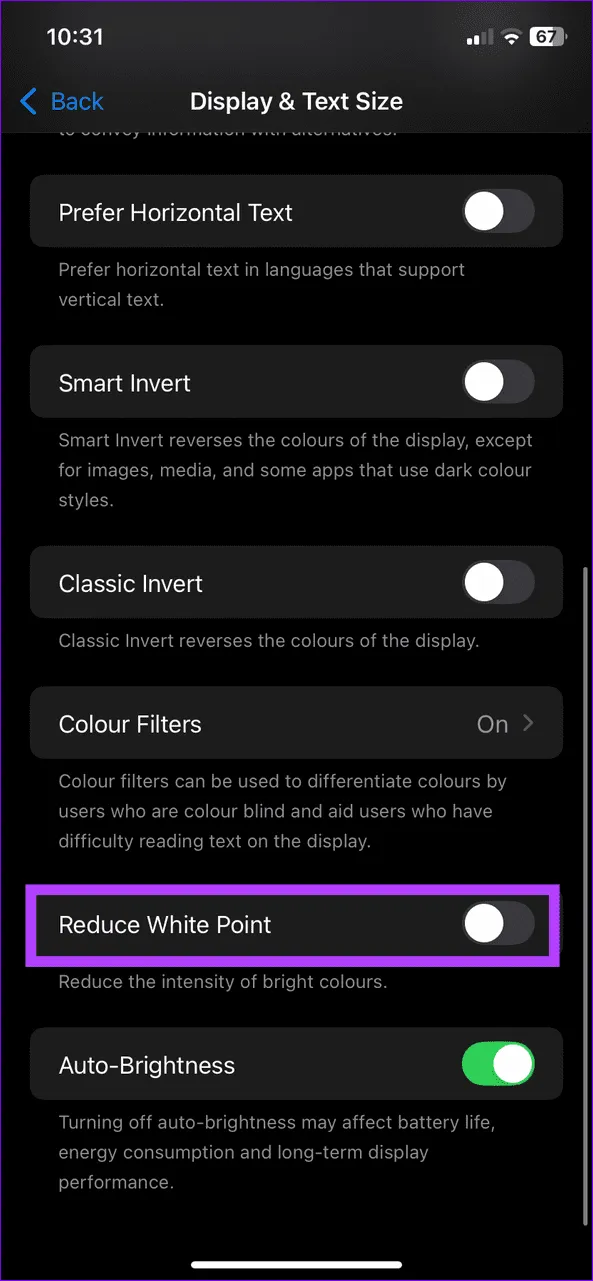
Solution 4: Disable Dim Flashing Lights
If your iPhone’s display dims while watching videos, turning off the Dim Flashing Lights option in Accessibility settings may help.
Step 1: Go to Accessibility in your iPhone Settings, then tap Motion.
Step 2: Disable Dim Flashing Lights to stop this feature.
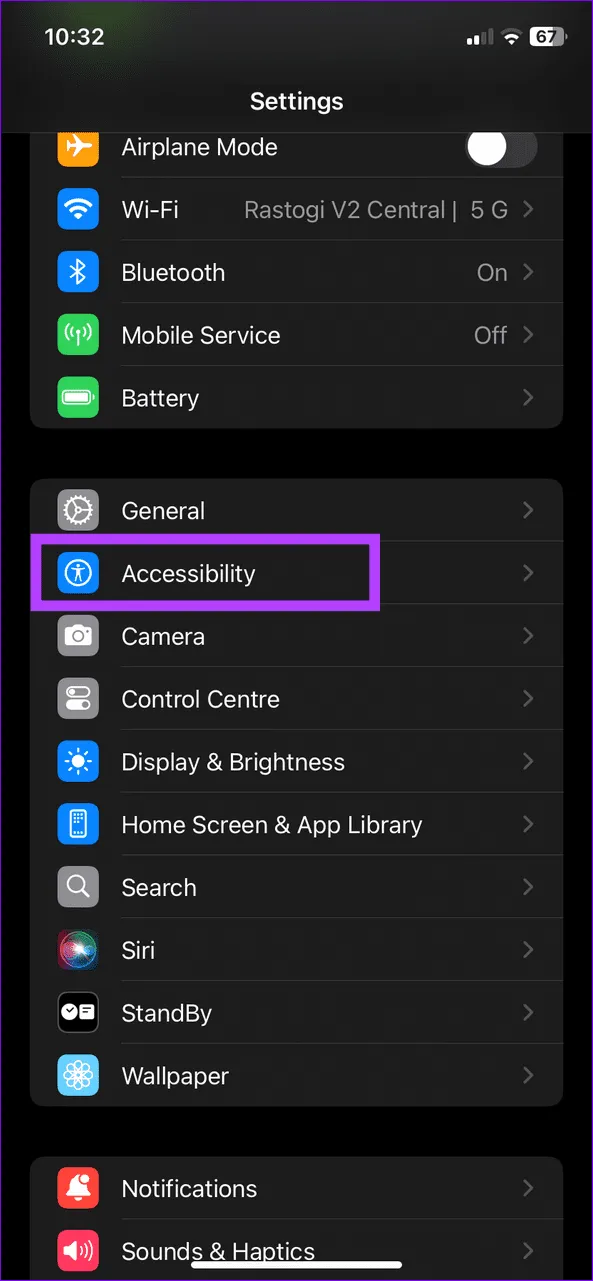
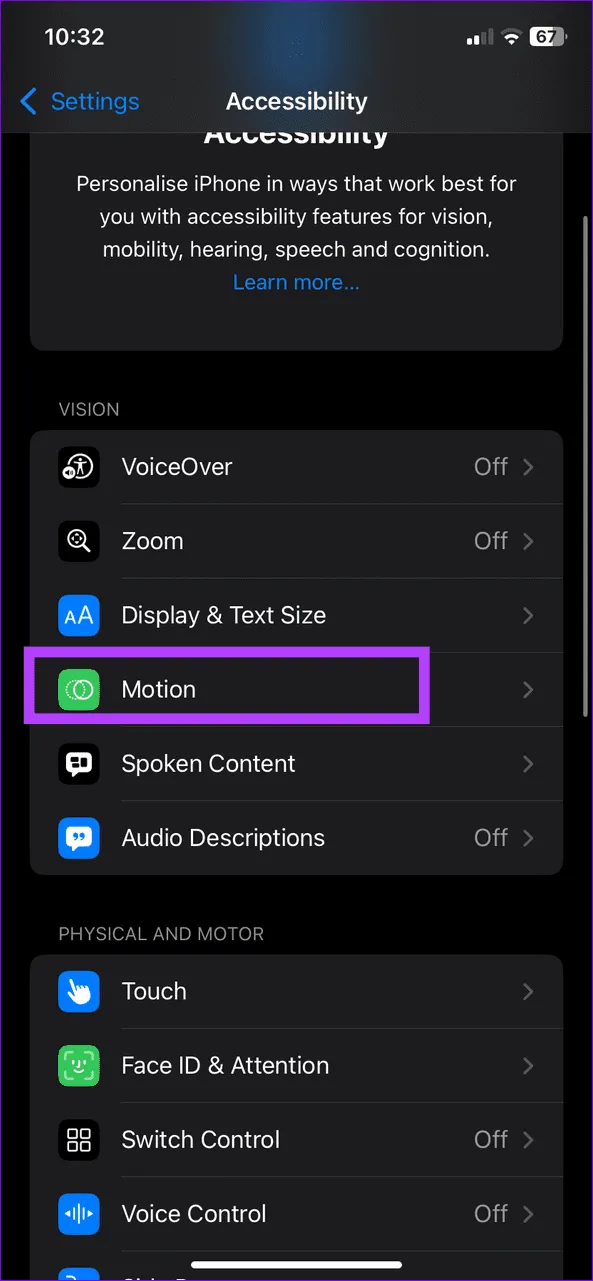
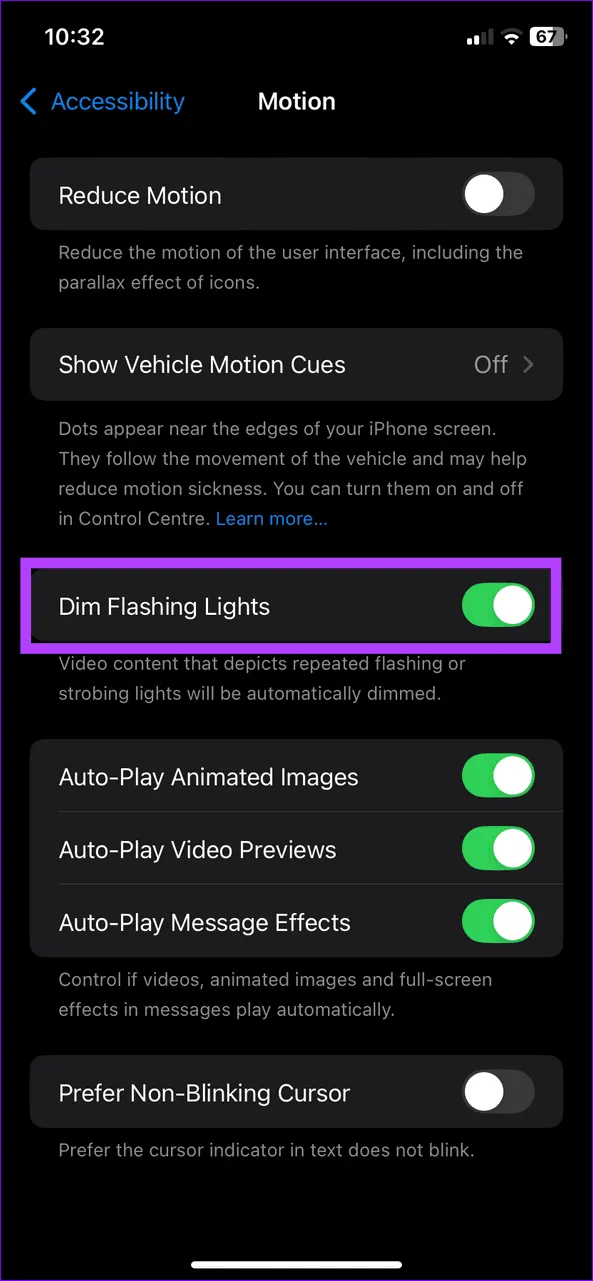
Solution 5: Turn Off Attention Awareness Features
iPhones come with Attention-Aware features that automatically dim the screen if it senses you are not looking at it. To disable this behavior, go to your Face ID settings and turn it off.
Access the Accessibility settings (as outlined in previous steps), choose Face ID & Attention, and toggle off the Attention-Aware Features.
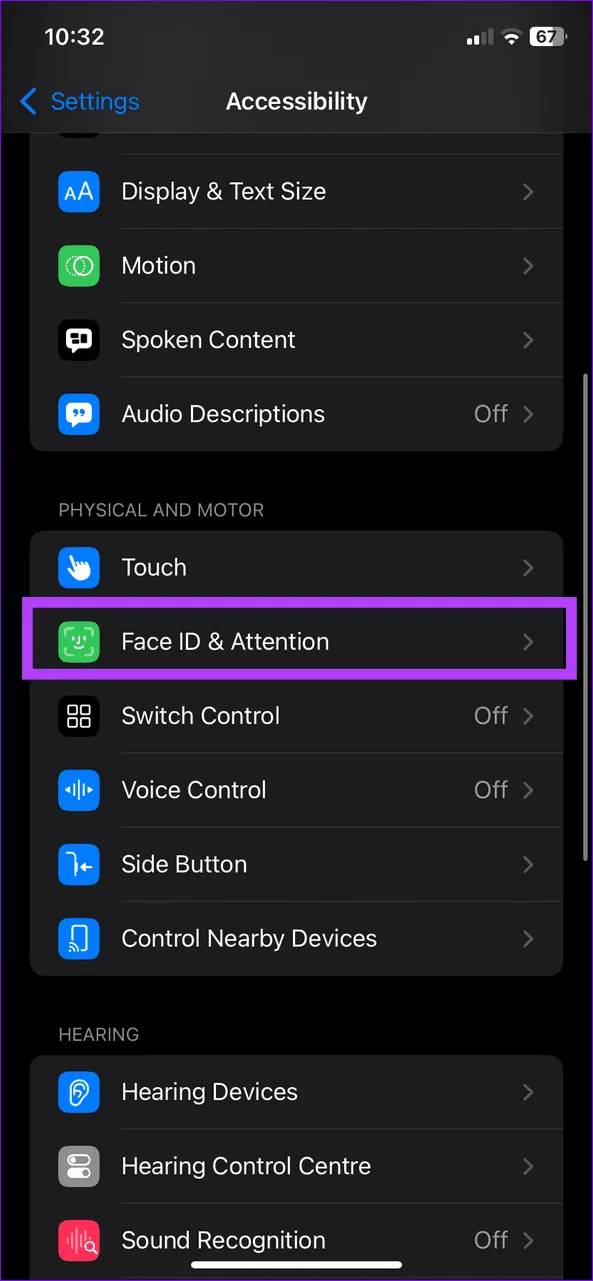
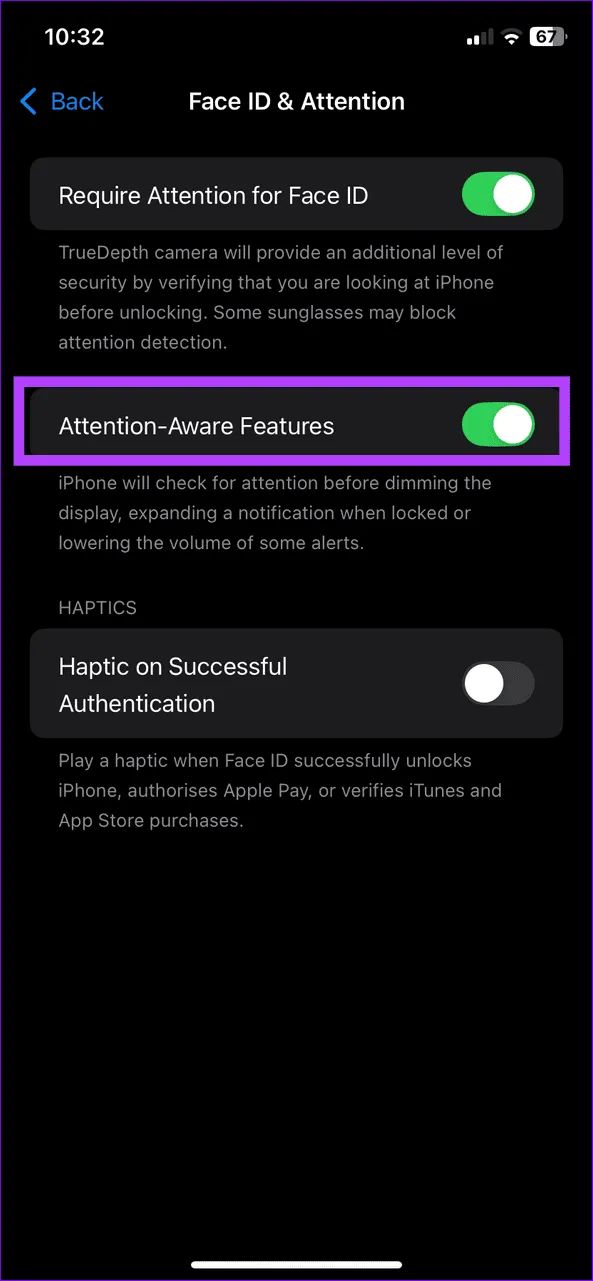
Solution 6: Reset All iPhone Settings
If the problem persists, resetting all settings on your iPhone can help resolve any issues related to brightness changes.
Step 1: Go into General from iPhone Settings and tap on Transfer or Reset iPhone.
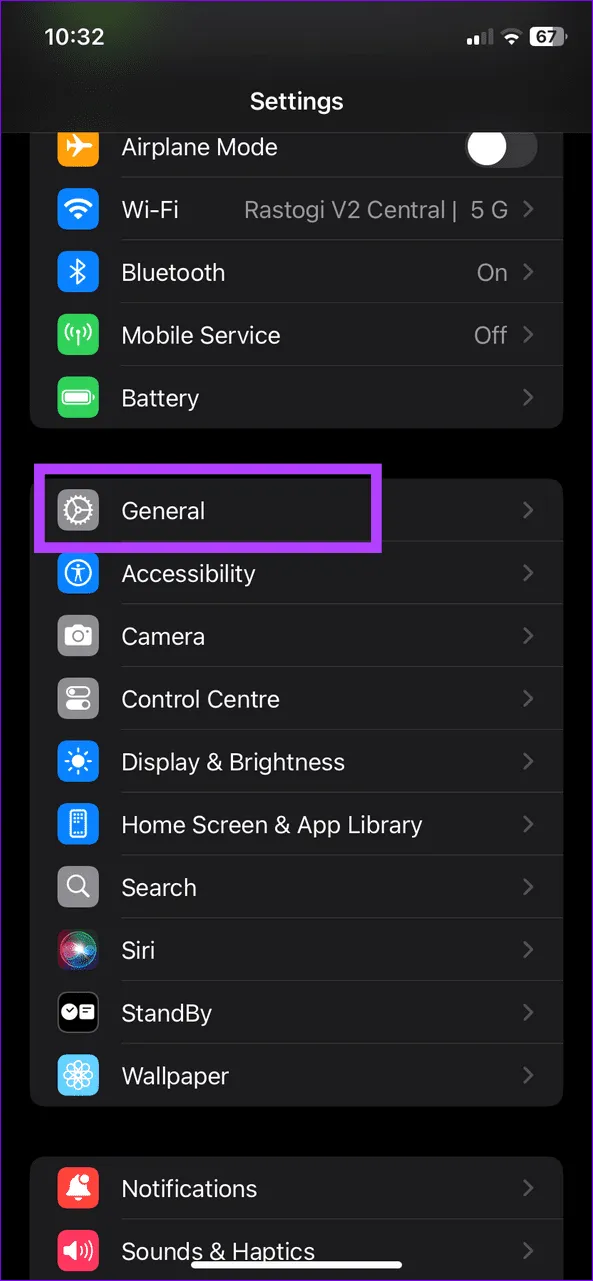
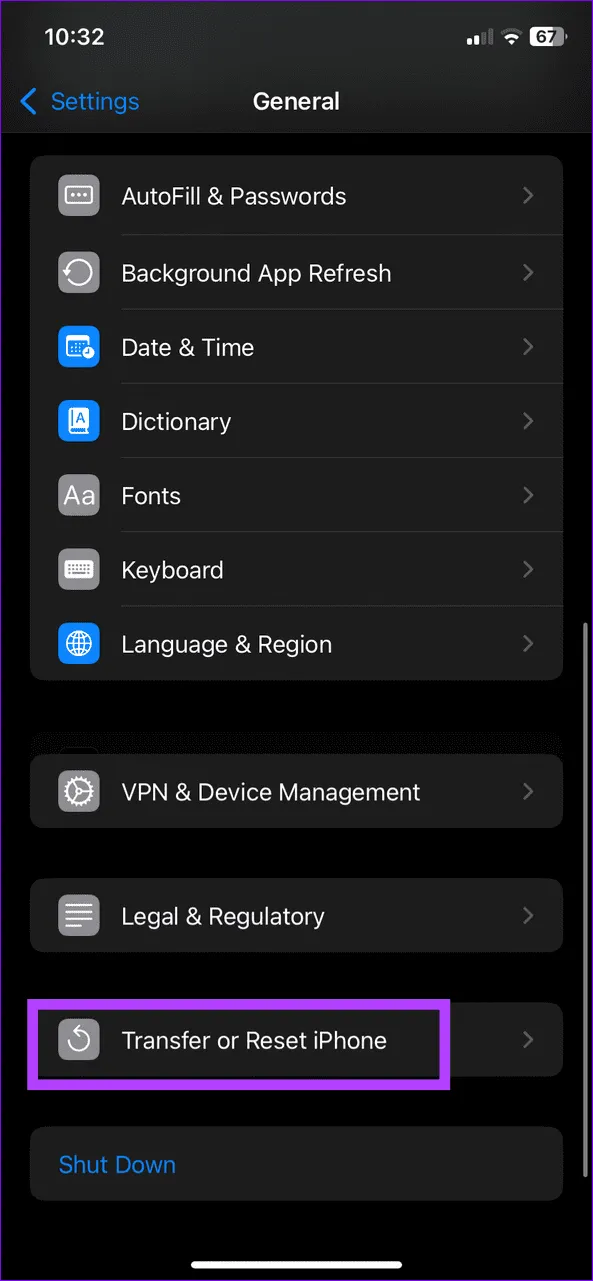
Step 2: Tap Reset and select Reset All Settings. Enter your device’s passcode if prompted to confirm the action.
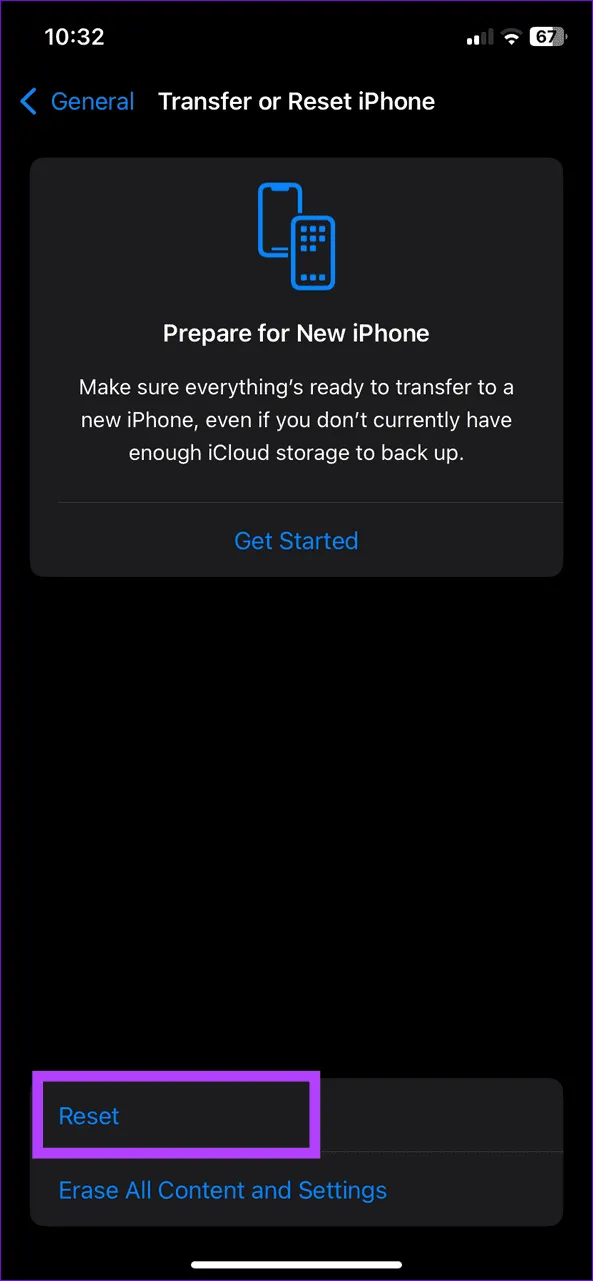
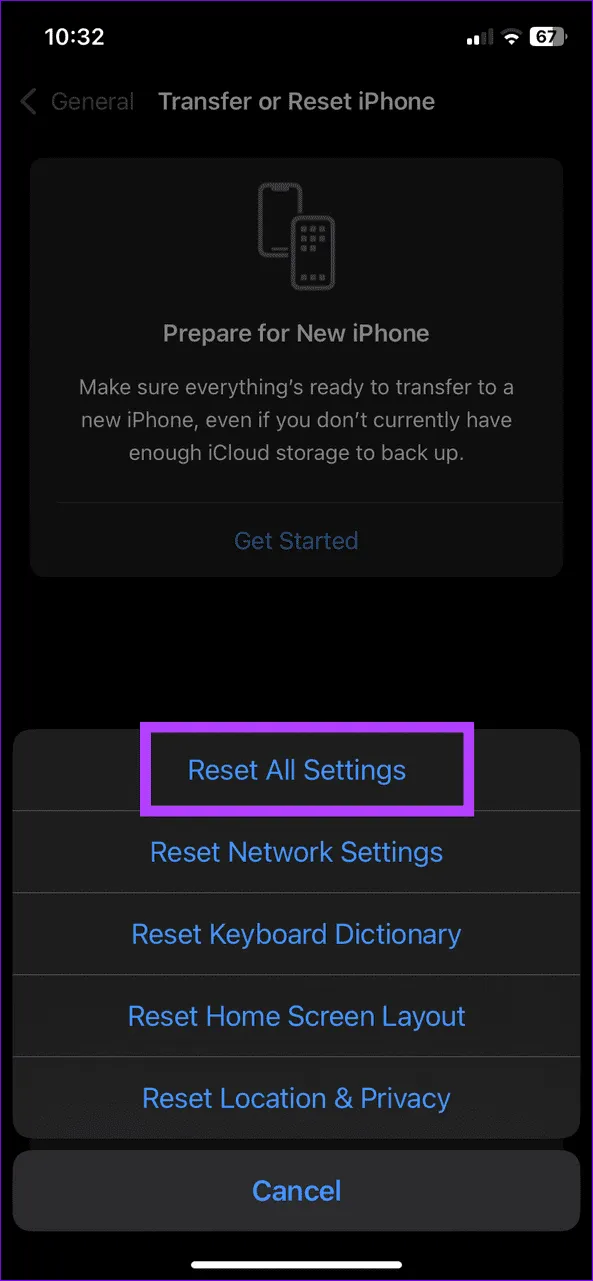
Image Credits: Guidingtech.com